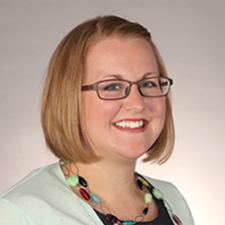Report Finds New School Choice Programs Would Cover Majority of Private School Tuition Costs
Nevada Private School Enrollment Expected to Spike 33 Percent
INDIANAPOLIS (Aug. 18, 2015) – A Nevada school choice program to launch in 2016 will cover the majority of private school tuition costs for many elementary, middle and high school pupils, according to a new survey released today by the Friedman Foundation for Educational Choice.
The survey report, Exploring Nevada’s Private Education Sector, shows half of private schools in Nevada charge a median tuition of $6,400 or less for students in grades K–5. The median tuition is $7,200 for grades 6–8 and $8,100 for high school.
Under the Nevada program called Education Savings Accounts (ESAs), eligible students with disabilities or children from low-income families will receive an estimated $5,700 ESA, which they can use to pay for a variety of educational expenses. For eligible middle- and upper-income families, students will receive an ESA worth approximately $5,100.
As a result, for at least half of the private schools in the state, the ESA program would cover at minimum 80 percent of private school tuition and fees in grades K–5, 70 percent in grades 6–8, and 63 percent in grades 9–12.
As many parents seek alternative schooling options through the ESA program, the number of Nevada students filling private school seats is expected to increase. The Friedman Foundation report estimates enrollment in private schools could potentially increase 33 percent — or by about 6,600 students — when ESAs launch next year. And that’s without any new schools being created.
“There is already incredible interest in this program from parents, students, and education providers,” said Robert Enlow, president and CEO of the Friedman Foundation for Educational Choice. “As with many school choice programs, we expect demand to outstrip supply quickly and new providers to fill the void with start-up private schools, online learning models, and schooling innovations that go beyond what we know today.”
A little more than two months ago, Nevada enacted what school choice proponents view as the nation’s most expansive ESA program, which is open to all 453,000 public school students in the state. The program allows families to receive their education dollars in government-authorized savings accounts with multiple uses. Parents could use ESA funds to pay for private school tuition, tutoring, educational therapies, transportation fees, or any combination of expenses that meets a child’s educational or social service needs.
Key findings from the Exploring Nevada’s Private Education Sector report also include:
- Half of the respondent schools said they provide families as much as $1,050 in additional tuition assistance
- Half of the respondent schools provide tuition assistance for as much as 13 percent of their student populations
- 37 percent to 41 percent of the respondent schools charge tuition rates between $6,000 and $9,999 for K–12
- 81 percent of respondent schools require students to take nationally norm-referenced tests or state assessments
- 79 percent of respondent schools said they would or probably would participate in the ESA program
Meanwhile, a survey of private schools conducted by the U.S. Department of Education, findings from which are included in Exploring Nevada’s Private Education Sector, also found:
- Nevada private schools enroll an average of 176 students in each school
- Nevada private schools enroll an average of 11.7 K–12 students per full-time K–12 teacher, compared to the 20.1:1 ratio in Nevada public schools
- 63 percent of private schools are located in Clark County; 20 percent are located in Washoe County
- 64 percent of Nevada private school graduates attend a four-year college.
“We believe this information about the private school community will be beneficial not just for Nevada parents, but also for policymakers,” Enlow said. “Our report provides the private education market’s before picture. As the new ESA program continues to drive healthy competition and demand, Nevada’s private school landscape is likely to look very different in the coming years.”
###
About the Friedman Foundation for Educational Choice
The Friedman Foundation for Educational Choice is a 501(c)(3) nonprofit and nonpartisan organization, solely dedicated to advancing Milton and Rose Friedman’s vision of school choice for all children. First established as the Milton and Rose D. Friedman Foundation in 1996, the Foundation promotes school choice as the most effective and equitable way to improve the quality of K-12 education in America. The Friedman Foundation is dedicated to research, education, and outreach on the vital issues and implications related to school choice.
More information contact:
Susan L. Meyers
National Media Relations Director
Friedman Foundation for Educational Choice
susan@edchoice.org 404-518-2271




